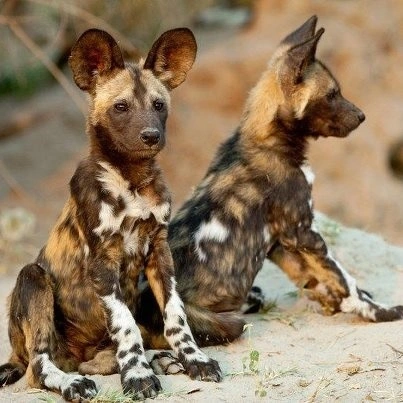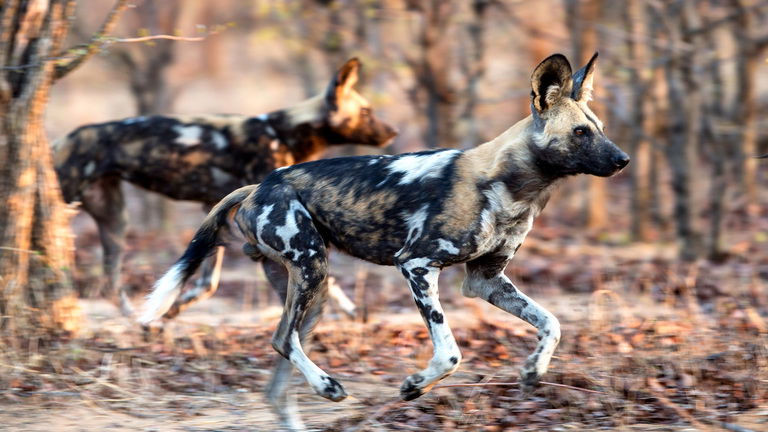African Wild Dog Conservation Project

Overview
The African Wild Dog Conservation Project under (ESCF) is dedicated to protecting one of Tanzania's most endangered carnivores: the African wild dog, also known as the painted wolf (Lycaon pictus). With less than 6,000 wild dogs remaining across Africa, these highly social and intelligent animals face numerous threats, including habitat loss, human-wildlife conflict, and diseases like rabies and distemper. This project focuses on preserving viable populations of African wild dogs and fostering coexistence between these endangered predators and local communities.

Objectives
Protect and Monitor Wild Dog Populations: Implement conservation measures to track, protect, and preserve African wild dog populations in Tanzania.
Minimize Human-Wildlife Conflict: Address conflicts between wild dogs and local communities, particularly livestock farmers, to reduce retaliatory killings.
Promote Disease Control: Combat diseases such as rabies and distemper that threaten wild dog populations by implementing vaccination programs for domestic animals.
Enhance Habitat Connectivity: Work to create wildlife corridors and protected areas that allow for the free movement of wild dogs across their range.
Raise Awareness and Education: Educate local communities and the public about the importance of African wild dogs to the ecosystem and involve them in conservation efforts.
Key Activities
Tracking and Monitoring: Use GPS collars and camera traps to track wild dog packs and monitor their movements, behavior, and interactions with other wildlife.
Vaccination Campaigns: Organize vaccination drives in villages near wild dog habitats to reduce the spread of rabies and distemper from domestic dogs to wild populations.
Conflict Mitigation Programs: Work with local farmers to implement predator-proof livestock enclosures (bomas) and promote non-lethal deterrents to minimize livestock predation.
Habitat Protection and Restoration: Collaborate with local governments and wildlife organizations to secure and restore key habitats for wild dogs, ensuring they have the space they need to roam, hunt, and thrive.
Community Engagement: Conduct outreach programs that educate local communities about the ecological importance of African wild dogs, dispel myths, and encourage participation in conservation efforts.
Research and Data Collection: Partner with research institutions to gather data on wild dog populations, behavior, genetics, and threats, using this information to shape future conservation strategies.
Expected OutcomesPopulation Stability: Stabilize or increase African wild dog populations in key areas of Tanzania through protection and monitoring efforts.
Reduced Human-Wildlife Conflict: Decrease incidents of wild dogs preying on livestock, leading to fewer retaliatory killings and improved relations between wild dogs and local communities.
Improved Disease Control: Significantly reduce the spread of infectious diseases like rabies and distemper in wild dog populations through effective vaccination campaigns.
Enhanced Habitat Connectivity: Protect and expand wild dog habitats, ensuring they have the space to move freely and maintain healthy genetic diversity.
Increased Public Support: Build a strong base of community and public support for wild dog conservation, with local communities playing an active role in safeguarding these iconic predators.
Impact
The African Wild Dog Conservation Project seeks to ensure the survival of this highly endangered species by addressing the key threats they face and fostering a balanced coexistence with humans. The project will not only protect wild dogs but also benefit local communities by reducing conflicts, promoting eco-tourism, and enhancing biodiversity. Through collaborative and sustainable efforts, ESCF aims to secure a future where African wild dogs can thrive in their natural habitats, contributing to the health and diversity of Tanzania’s ecosystems.
Donate. Volunteer. Spread Awareness